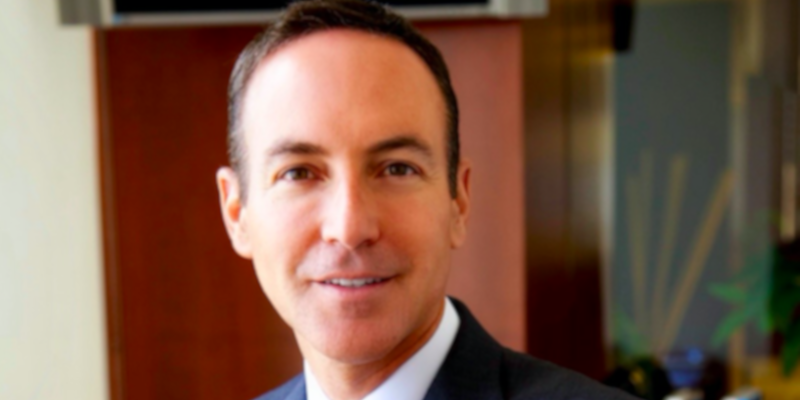Jason Ader has stated that his company SpringOwl, an ‘independent sponsor and buyout firm’, is tracking all developments of a disrupted global gambling landscape as ‘the pandemic has opened the market’.
Speaking to SBC, Ader stated that he is neither undeterred by talk of ‘doom-and-gloom’ nor swayed by easy rhetoric related to ‘business accelerations’. Instead, he recognizes that global gambling is recalibrating against future unknowns, a factor that signals there is money to be made.
“The world will begin to recover in nine-to-eleven months, dependent on further outcomes. I’m from New York, and I remember working in the city after 9/11, and people said at the time that it was all over for us. Those who had the foresight to invest made a lot of money,” Ader recalled.
Alongside Wall Street counterparts Ader has been monitoring heightened activity in gambling investments undertaken during lockdown – an intriguing development as US and European operators are burdened by mitigating retail and regulatory uncertainties.
Stateside, Ader acknowledged that heavyweight investors are beginning to develop their gambling portfolios, driven by the prospect of sports wagering becoming the next multi-billion dollar technology market – which is underlined as the desired outcome for all industry stakeholders.
Case-in-point, Ader highlighted last week’s $1bn investment in MGM Resorts undertaken by entertainment mogul Barry Diller’s IAC fund.
He said: “Assessing market dynamics and recovery impacts, I favor gambling investments that can carry a strong digital profile. Those land-based casino firms that can effectively convert their customer base to new online gambling products.
“Take Barry Diller and his $1bn bet on MGM; he knows what he is doing. That company is digitally underpenetrated, and as MGM is forced to restructure its operating units, he knows that they will have to move their customers online.”
Although investors appear to be swayed by the strengthened digital prospects of US wagering, Ader maintained that expectations will collide against his forecast and that land-based casinos will fail to break even between next 12-to-18 months.
Underlining that ‘plexiglass is not good for business’, he stated that he is ‘left scratching his head’ as to how land-based casinos will offer any entertainment value in welcoming customers back to their venues.
While the US maintains its investor appeal, Ader remained somewhat downbeat on UK market prospects despite the continued consolidation of market incumbents forming new FTSE giants.
From Manhattan, Ader has observed FTSE betting incumbents become entrenched in a divisive political debate on gambling’s conduct and social impacts. Yet, he told SBC that he is not an outsider looking in on British polemics and that he fully understands the stakes in play.
He continued: “I certainly know the UK market well, having lived in the country and invested in FTSE companies throughout my professional career.
“However, the regulatory and political landscape has drastically changed. I agree that improving player protections are a critical matter, but not the measures that have been taken.
“It appears that the regulators have neglected any debate or investment in technologies such as AI innovations that can protect vulnerable players and consumers.”
Noting further inbound regulatory upheavals, Ader believes that the UK will shortly lose its tag as the trendsetter for global igaming and sports betting: “No, that phase is long gone,” he said. “The UK I believe is now the worst market for igaming investments. US gambling will soon surpass the UK and Europe as the marketplace for mass investments for online gambling.”
Readers may well be perplexed as to Ader’s downbeat UK assumptions, as the US investor himself carries the tag of being recognized as the industry’s ‘activist’, having maintained a track record of high profile investments in IGT, bwin.party and Playtech most recently.
Probed on his media profile as the ‘boogeyman of gambling boards’, Ader stands by his investment record, taking large scale stocks in underperforming companies and creating long-term value.
He concluded: “I do recognize what the media says, but I don’t agree with it. I have always viewed myself as a long-term investor, and I want to see my companies perform.
“Take Playtech. The company has delivered performance below expectations for a two-to-three-year period with its executive team rewarded for constant underperformance. Something had to be done.
“Activism is viewed by some as just buying-up stock in underperforming firms and demanding changes as an investor. But they don’t understand the level of research that we undertake, to implement strategies that can turn around a company’s performance beyond its stock price.
“As I said to the management at Party Gaming and Playtech, if they don’t like what I have to say, well then prove me wrong.”
Ader maintains that he has never actively pursued investor and boardroom level conflicts, in which he ascertains that gambling remains one of the few entrepreneurial industries which allows CEOs to form independent strategies.
This is recognized as a key dynamic as gambling enters a new decade of complexities, in which its incumbents will have to tackle radical consumer changes and diversify their product ranges for new consumers.
Ader concluded that the aftermath of 2020’s unprecedented events will reveal which companies and leaders have buckled up for drastic changes.














